The Office of Faculty Affairs, in collaboration with the Office of Healthcare Equity, offer programming to support our underrepresented in medicine and science (URMS) faculty across all departments. We are investing in this important work to ensure the success, retention, and recruitment of URMS faculty, and to realize the UW Medicine mission of an anti-racist institution that maximizes the potential of all faculty to improve the health of the public. By actively supporting the success of our URMS faculty through collaborations and building community, we will be able to strengthen retention and bolster recruitment.
Success for Underrepresented Faculty (SURF) Program
SURF is a small-group 10-month program focused on career development, coaching, and peer co-learning.
Over the year-long program, we cover topics important to career navigation, productivity, mentor and leader relationships, and future planning. Participants commit to attend monthly 90-minute group meetings, monthly 1:1 coaching support in the critical early phases of career development, as well as two half-day career development seminars. We currently accept up to 15 faculty per cycle.
Click here to apply for the 2024-2025 cohort. Deadline is April 10, 2024.
Please contact Dr. Michelle Terry at mterry@uw.edu or Kat McGhee Drummond kmcghee@uw.edu with questions about SURF.
2023-2024 Cohort
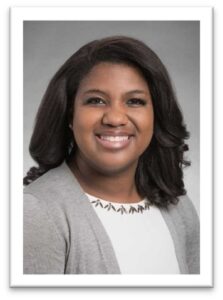

Dr. Ryan Abe (she/her) is an Acting Instructor in the Division of General Internal Medicine in the Department of Medicine and works clinically as a hospitalist at UW-Montlake. Her academic focuses are in teaching, mentorship, and health equity education. She directs the Health Equity Pathway for the Internal Medicine residency program and is a College Mentor in the School of Medicine.
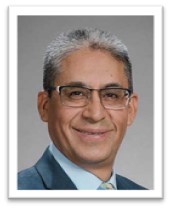

Dr. Oscar Bailon is a Clinical Assistant Professor in the Division of Cardiology at University of Washington – Northwest Hospital. Born in a small Andean village in Peru, he has overcome many challenges to achieve his dream of becoming a Cardiologist. He believes that best patient care outcomes are enhanced by incorporating patient preferences, needs and values. He is interested in further developing his leadership and mentorship skills to encourage underrepresented minority students to pursue academic careers and join Medicine.
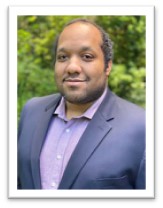

Timothy Brown, PhD Bioethics and Humanities
Dr. Timothy Brown joined the department of Bioethics and Humanities in July 2021 as an Assistant Professor. Dr. Brown works at the intersection of biomedical ethics, philosophy of technology, (black/latinx/queer) feminist thought, and aesthetics. His research explores the potential impact of neurotechnologies—systems that record and stimulate the nervous system—on end users’ sense of agency and embodiment. His work also interrogates neurotechnologies for their potential to exacerbate or create social inequities, in order to establish best practices for engineers. Finally, Dr. Brown’s approach to research is interdisciplinary, embedded, and relies on mixed methods; his work on interdisciplinary is aimed at encouraging deeper collaborations between humanists and engineers in the future.
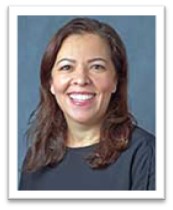

Dr. Duarte Bojikian is an Assistant Professor and physician-scientist in the Department of Ophthalmology. Her clinical interests include the surgical and medical management of standard and complex glaucoma and cataract cases, and her research focus on innovative ocular imaging modalities in the diagnosis and disease progression monitoring in glaucoma and healthcare disparities in ophthalmology care. Dr. Duarte Bojikian is the chair for the UW Ophthalmology Diversity, Equity, and Inclusion Committee and the Director for UW Ophthalmology Alumni Relations. She is also passionate about medical students’ and residents’ education, training, and mentoring.
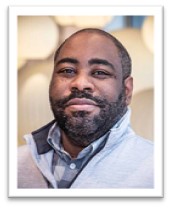

Dr. Myron Evans II is an Assistant Professor in the Department of Pediatrics (Division of Hematology/Oncology) at the University of Washington, Seattle. Dr. Evans is a Principal Investigator at Seattle Children’s Research Institute Ben Towne Center for Childhood Cancer Research and an Affiliate Associate Member at Fred Hutchinson Cancer Research Center in the Human Biology Division. His lab focuses on the genetic and epigenetic mechanisms underlying tumor initiation and progression in pediatric central nervous system (CNS) tumors, such as medulloblastoma and diffuse midline glioma. His laboratory also investigates basic mechanisms of mammalian CNS development to better design and test novel therapeutic interventions. Dr. Evans seeks to build a diverse and inclusive lab environment that encourages scientists from both traditional and non-conventional paths to excel.
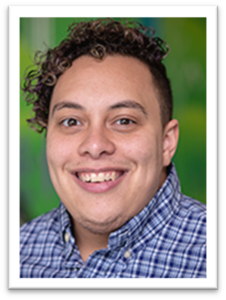

Dr. Connor Gallik, PhD, is the attending psychologist for the Adolescent Program on the Psychiatry and Behavioral Medicine Unit at Seattle Children’s Hospital and Acting Assistant Professor in the Department of Psychiatry and Behavioral Sciences at University of Washington. His research focuses on understanding factors related to the mental health and wellbeing of transgender and gender diverse (TGD) TGD youth and evidence-based practice on inpatient units. Clinically, he is interested in working with children, adolescents, and their families, with a focus on TGD youth. Dr. Gallik also provides training in TGD affirming care for mental health and medical professionals and speaks to community audiences about supporting transgender youth.
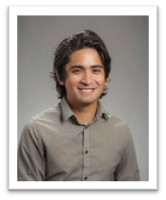

Dr. Marco Garcia is a Clinical Assistant Professor in the Division of General Pediatrics. His clinical interests focus on supporting the health and wellness of the LGBTQ+ community. He also has an interest in medical education and serves as a continuity clinic preceptor and a clinical coach for the pediatrics residency program.
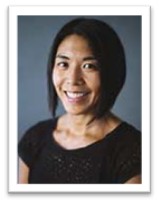

Dr. Sarah Galinato Gerrish is a full spectrum Family Physician whose passion lies in health care justice through community engagement, education, health empowerment, and identity equity. She recently joined the University of Washington School of Medicine as the Director of Curriculum Equity to further the mission of inclusive, representative, and anti-biased medical education. She is faculty at UW Family Medicine Resident Network and Full Circle Health Family Medicine Residency of Idaho Boise program where she founded, developed and teaches the Justice, Equity, Diversity and Inclusion longitudinal curriculum.
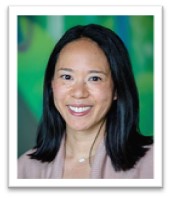

Dr. Hernandez is an Assistant Clinical Professor in the Department of Obstetrics and Gynecology. She practices Pediatric and Adolescent Gynecology at Seattle Children’s Hospital. She enjoys multi-disciplinary care and participates in the Reconstructive Pelvic Medicine and Differences of Sexual Development Clinics. She also started a Chronic Pelvic Pain multi-disciplinary clinic, which has been helped adolescents suffering with pelvic pain find hope and begin healing. She is passionate about providing equitable care for underserved patients.


Dr. Abir “Abby” Hussein is a Clinical Assistant Professor in the department of Allergy & Infectious Disease. She also works in the School of Medicine as a College faculty mentor and in this role acts as a coach and provides the clinical foundation for an assigned group of medical students each year through their four years of training. Dr. Hussein is also the Associate Medical Director of Infection Prevention at UWMC – Montlake and helps shape and shift policies and practices related to hospital acquired infections and other concerns. She is passionate about clinical infectious disease work and medical education and mentorship as well as improving diversity, equity, and inclusion both in the hospital and in academia.
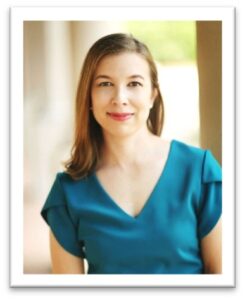

Dr. Clara Lampi is a Clinical Assistant Professor in the Department of Pediatrics, Division of Hospital Medicine. Her clinical sites include Seattle Children’s Hospital and Providence Everett. She is interested in the relationship and communication between tertiary medical facilities and community providers, as well as early mentoring and exposure to the healthcare professions for traditionally underrepresented groups.
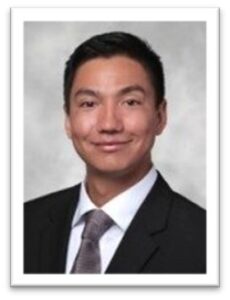

Dr. Joseph Nelson (he/him) is an enrolled member of the Confederated Tribes and Bands of the Yakama Nation and holds the title of assistant professor with the UW Department of Family Medicine. He is the inaugural Associate Program Director for Diversity, Equity and Inclusion with the UW Family Medicine Residency and his passion for teaching has carried into his work combating racism and all forms of discrimination and oppression that occurs in patient care and the learning environment. Dr. Nelson practices broad spectrum family medicine and enjoys his diverse practice in Seattle.
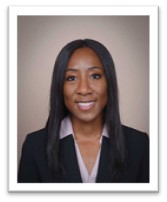

Dr. Hope Opara is a Clinical Assistant Professor of Neurology at the University of Washington and Harborview Medical Center. Dr. Opara is originally from Minnesota, where she completed medical school and residency before coming to the University of Washington for vascular neurology fellowship. As a stroke specialist, her interests include acute stroke intervention and management, primary and secondary stroke prevention, and use of transcranial doppler particularly for surveillance of cerebrovascular disease severity in sickle cell patients.
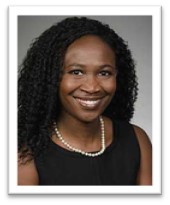

Dr. Oyetunji is a cardiothoracic surgeon who specializes in the treatment of all adult general cardiac surgical diseases. She serves as the section chief of Cardiac Surgery at the Veterans Administration Puget Sound and also sees patients at the UW Medical Center – Montlake campus. Oyetunji’s clinical interests include surgical and transcatheter approaches to the management of valvular heart diseases including aortic stenosis, mitral valve disease and hypertrophic cardiomyopathy. She has a keen interest in global surgery and seeks to develop academic partnerships toward sustainable surgical programs in low- and middle-income countries.
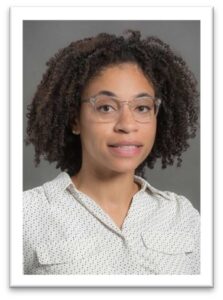

Dr. Tara Reid is an Acting Instructor of Infectious Diseases in the Department of Medicine at the University of Washington. Concurrent with her medical training, she studied the natural history and pathogenesis of the agent of syphilis, Treponema pallidum subsp. pallidum. Dr. Reid is passionate about educating people about preventing and treating sexually transmitted infections. To that end, she teaches in the UWSOM, cares for hospitalized and ambulatory patients. She additionally is advancing projects related to the understanding of T cell.


Dr. Claudia Vásquez is an Assistant Professor in the Department of Biochemistry. She received a BS in Biology at Brandeis University. After completing her PhD in Biology at MIT, she moved to Stanford University to complete her postdoc. She started her lab at UW in January 2023. Her group’s research goal is to understand the molecular and physical rules that cells use to build functional organs. She believes that a productive laboratory environment is one that is truly welcoming and working towards the advancement of all individuals.
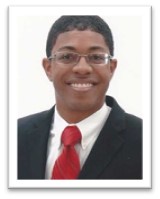

Dr. Patrick Wedgeworth is a graduate of the Clinical Informatics fellowship at University of Washington, and an Internal Medicine trained physician with a master’s degree in information systems management from Carnegie Mellon University. He has experience in Epic building, data analytics, patient care in underserved communities, and working in an advisory role for municipal public health initiatives. During residency, he worked on compiling data and deriving insights from his institution’s COVID-19 inpatient population and examined the impact of telehealth interventions during the pandemic. His work is currently focused at the intersection of clinical care, analytics and social determinants of health, and he has contributed to projects such as examining patient sentiment towards the use of NLP to collect social determinants data, and creating a data driven strategy for health systems to engage community based organizations. He is interested in the use of data analytics and clinical decision support to drive evidence-based, socially informed care that improves patient health and outcomes.
2022-2023 Cohort
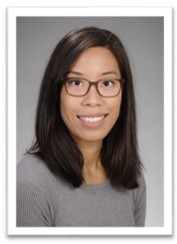

Crystal Brown, MD, MA Pulmonary, Critical Care, and Sleep Medicine
Dr. Crystal Brown is an Assistant Professor and physician-scientist in the Division of Pulmonary, Critical Care, and Sleep Medicine. Her research focuses on understanding how discrimination and other forms of racism affect communication and decision-making in racially marginalized patients with serious illness.
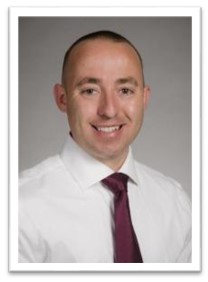

Germán Gornalusse, PhD, MS Obstetrics and Gynecology
Dr. Germán Gornalusse is an Acting Assistant Professor in the Department of Obstetrics and Gynecology at the UW and Affiliated Scientist in the Vaccine Infectious Disease Division (VIDD) at the Hutch. He is currently working with Dr. Florian Hladik’s group and is interested in the intersections between HIV-1 infection and latency, HIV (Human Immunodeficiency Virus) medications, opioids use and the immune response of the female reproductive tract.
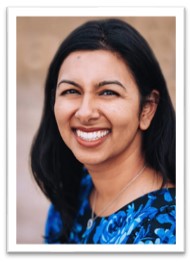

Nabiha Huq Saifee, MD, PhD Laboratory Medicine
Dr. Nabiha Huq Saifee is a Clinical Assistant Professor and clinical pathologist specializing in pediatric transfusion and coagulation with the aim to improve transfusion and anticoagulation management in pediatric patients via clinician education, quality improvement projects, assay development, and research studies. She is currently transfusion service medical director and apheresis service associate medical director at Seattle Children’s. Professionally, she enjoys teaching and guiding standardized evidence-based practices via local and national committee work and clinical research.
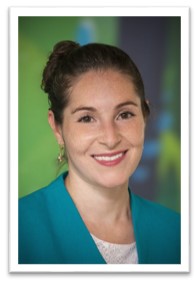

Victoria Lopez Konold, MD Infectious Disease and Virology
Dr. Victoria Lopez Konold is an Assistant Professor and pediatric Infectious Disease physician at Seattle Children’s Hospital. Dr. Konold’s research focuses on the intersection of informatics, quality improvement and antimicrobial stewardship. She serves as the Director of QAPI for the Division of Pediatric infectious Diseases, and as the Associate Medical Director of the Antimicrobial Stewardship Program at Seattle Children’s Hospital. In these roles she leverages the electronic health record to nudge provider behaviors toward guideline-centered care, and extracts data from the electronic health record to answer questions about quality and equity. She is interested in further developing her leadership skills, finding ways to incorporate tenets of DEI into her work, and connecting with other URM (Underrepresented Minorities) faculty, trainees and staff.
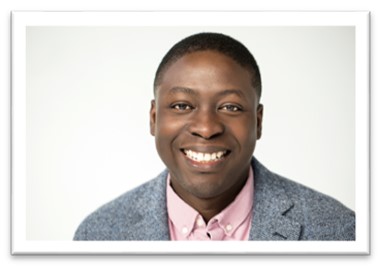

Nana Minkah, PhD Pediatric Global Infectious Disease Research
Dr. Minkah is a scientist at the Center for Global Infectious Disease Research at Seattle Children’s Research Institute and an Assistant Professor in the department of Pediatrics at the University of Washington. His research is primarily focused on hepatic immunity, and his team aims to utilize observations from our studies to develop immune-directed therapies against liver disease and hepatotropic infections. He believes that creating an environment that continuously combats racism, homophobia, sexism, transphobia, and other institutionalized and systemic oppressions is critical to the development of an inclusive, equitable and welcoming scientific community where each person feels valued and respected to do impactful work.
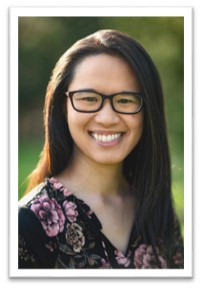

Elizabeth Nguyen, MD, PhD Pediatric Nephrology
Dr. Liz Nguyen is an Acting Assistant Professor of Nephrology with the University of Washington School of Medicine’s Department of Pediatrics. She started as a faculty member in the Division of Nephrology at Seattle Children’s Hospital in October 2021 after completing residency and fellowship. Dr. Nguyen oversees a lab at the Seattle Children’s Research Institute studying the genetic and epigenetic regulation of kidney repair after injury. She also loves seeing patients, and particularly enjoys working with kids who develop lifelong kidney disease at an early age and getting to be a part of team that teaches them how to manage and master their health.
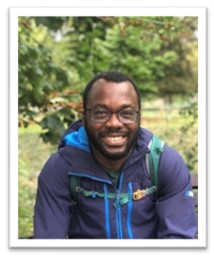

Ayokunle Olanrewaju, PhD Bioengineering
Dr. Ayokunle Olanrewaju aims to transform our approach to monitoring, treating, and preventing diseases by developing wearable autonomous devices that automate complex molecular tests. Ayokunle received BSc and MSc degrees in electrical engineering from the University of Alberta in Edmonton, Canada. After completing a PhD in Biological and Biomedical Engineering at McGill University in Montreal, Canada. He moved to Seattle for a postdoc in the Mechanical Engineering Department at UW. He started his lab as an Assistant Professor in the Mechanical Engineering and Bioengineering Departments at UW in January 2022. The Olanrewaju lab combines his expertise in autonomous microfluidics and drug activity assays to develop technologies for real-time disease monitoring at the point of need, whether in a doctor’s office or patient’s home. He is also committed to finding community-oriented and people-centered approaches that help to support those who are historically underrepresented and marginalized in academia and society.
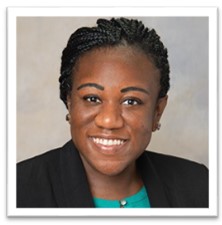

Jennifer Ray, MD Gastroenterology
Dr. Ray is a Gastroenterologist at Harborview Medical Center with a focus in motility disorders of the gastrointestinal tract. Dr. Ray is originally from Saint Louis, Missouri where she completed her medical training before joining University of Washington. Her passion is providing mentorship to trainees and enhancing the education of current and future physicians.
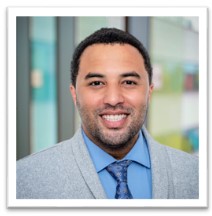

Hannibal Person, MD Pediatric Gastroenterology & Hepatology
Dr. Hannibal Person is an Assistant Professor of Pediatrics in the Division of Gastroenterology and Hepatology at Seattle Children’s Hospital and University of Washington. He has always been fascinated by the intersection of mental and physical health and completed training in pediatric medicine as well as general and child & adolescent psychiatry. His clinical passion is disorders of gut-brain interaction, and he is currently building the Gut-Brain Health Program, an interdisciplinary program for children with chronic gastrointestinal symptoms. His research passion is racial health equity, and he is currently completing projects related to mitigating provider racial bias via educational interventions.
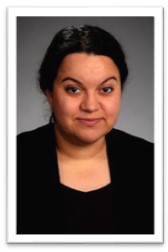

Mariya Sweetwyne, PhD Laboratory Medicine and Pathology
Dr. Mariya Sweetwyne is a Cell Biologist and Assistant Professor in the Department of Laboratory Medicine and Pathology at the UW School of Medicine. She grew up in the Pacific Northwest and earned a BS in Zoology and a BS in Cell and Molecular Biology from the University of Washington. Her laboratory focuses on basic and translational research to better understand how cellular aging in the kidney shapes the progression of kidney diseases. The goal of this research is to identify safe therapeutic targets to reduce kidney disease progression during late ages. Academically, she is working to foster a laboratory environment that welcomes mentees arriving from both traditional and less-conventional paths. Her goal is to support mentees in their own unique careers while also fostering the best science by building a creatively diverse research team.
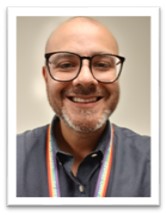

Luis Tulloch Palomino, MD Allergy and Infectious Diseases
Dr. Luis Tulloch-Palomino is a Clinical Assistant Professor and clinician-teacher in the Division of Allergy and Infectious Diseases. He is the lead of the Antimicrobial Stewardship and HIV Telehealth programs at the VA Puget Sound. In his current role he works to optimize antimicrobial use and increase access to HIV prevention and screening services for rural and other underserved Veterans.
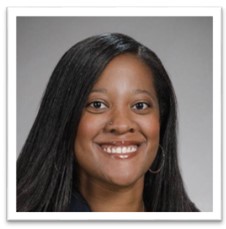

Porshia Underwood, MD Obstetrics and Gynecology
Dr. Porshia Underwood is a diligent and concerned OB-GYN. She practices medicine as a part of UW Medicine Women’s Health Care and offers OB-GYN consultations for various health issues. These include uterine fibroids, breast problems, vaginal irritation, hormonal imbalance, and menopause.
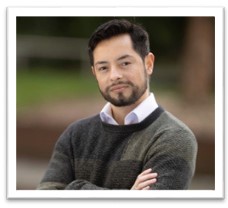

Oscar Vivas, PhD Physiology and Biophysics
Dr. Oscar Vivas is a Research Assistant Professor in the Department of Physiology and Biophysics. He is interested in understanding how aging alters the autonomic nervous system. His professional goal is to have a laboratory with an established culture based on peer mentoring, collaboration, and the general principle of helping others.
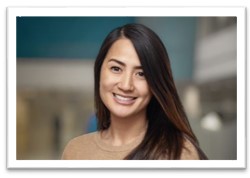

Dr. Holly Hoa Vo is a new faculty member and a clinician, educator, and researcher. Prior to medical school she was a middle school math and science teacher for a few years in Brooklyn, NY. As she moved through medical school and subsequent teaching, she found ways to tie together her various interests in teaching, public health, and bioethics by being involved in various organizations and projects. Her interest in bioethics fits hand in glove with her professional background and strong interest in global health and healthcare equity.
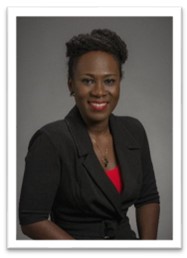

Afua Yorke, PhD Radiation Oncology
Dr. Yorke is an Assistant Professor in Medical Physics at the Department of Radiation Oncology. Her research focus is in Global Oncology working with radiotherapy centers in Lower-Middle Income countries investigating their medical physics quality assurance and management practices to improve patient care. She works with the Girls Excellence Movement in Ghana as the director of STEM to change the narrative and outlook for young girls. She is passionate about education, training, and mentoring.
